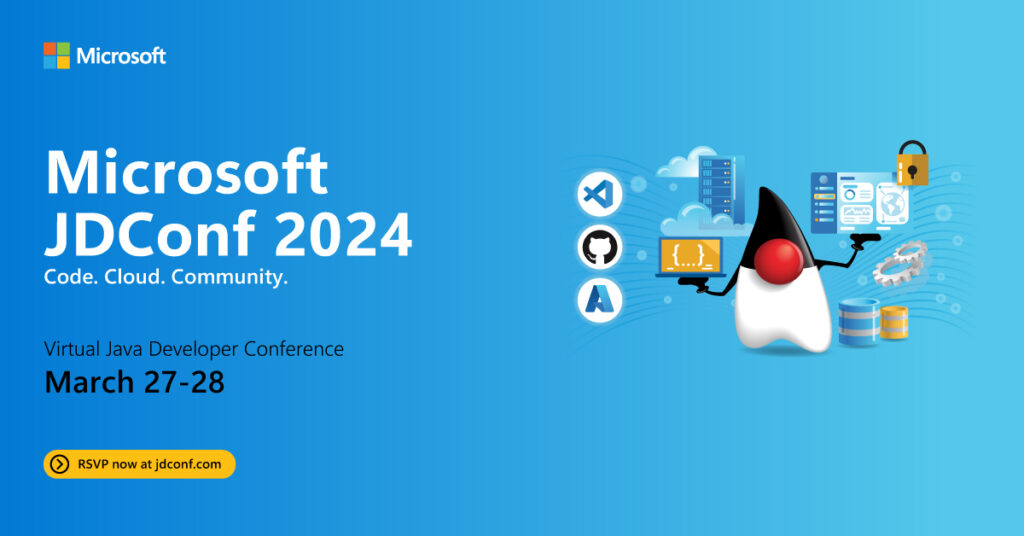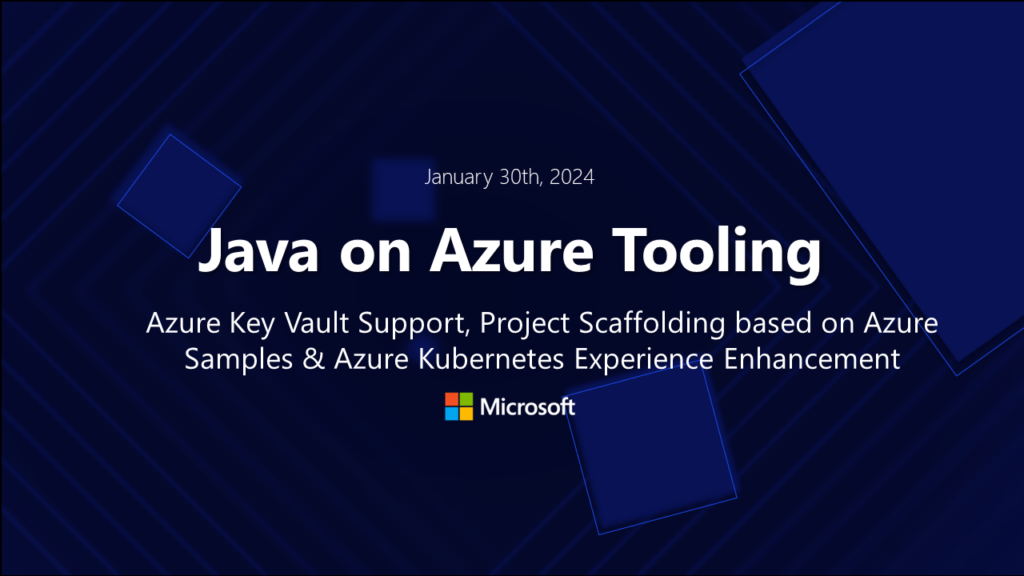


Java on Visual Studio Code Update – February 2024

Speed up your Java Development on Windows with Dev Drive

Monitor your Spring Boot native image application on Azure

Microsoft JDConf 2024 Announces Keynote Speaker and Breakout Sessions – Java, Cloud and AI

Meet the First Round of Speakers for Microsoft JDConf 2024: Where Java, Cloud, and AI Come Together

Java on Visual Studio Code Update – January 2024

Java on Azure Tooling Update – January 2024

Microsoft Build of OpenJDK – January 2024 Patch & Security Update Release


 Light
Light Dark
Dark